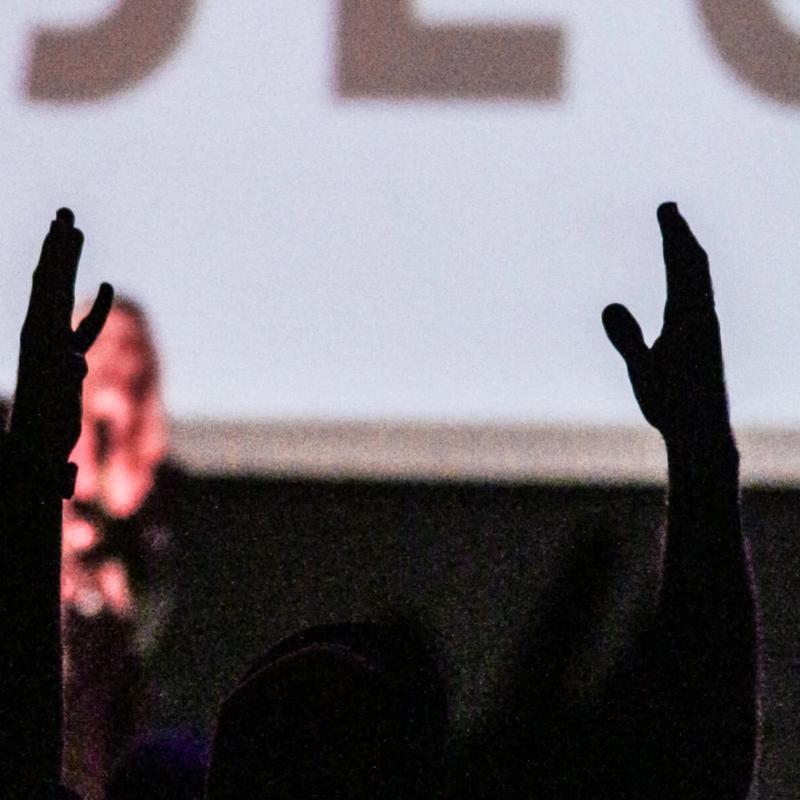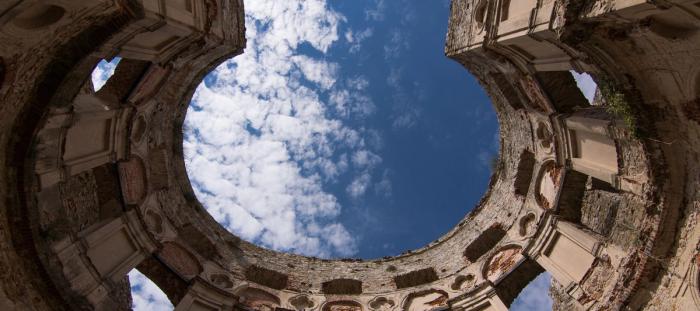Awkward Gifts
Has anyone given you a gift they were really excited about—but it wasn’t something you needed, wanted, or even really cared about? Imagine them cheering you on as you open your gift, only to find the leg lamp from the movie A Christmas Story. They laugh hysterically while you wonder, what’s going on here? They were giving a gift to you, but in a way, it was really for them.
As self-serving and offensive as we may act toward one another with our gift-giving, how much more so when it comes to what we bring God when we approach him in worship? Yet God, in his grace, has not left us to ourselves to figure out what he desires. From the old covenant to the new, he has given his people priests to guide and guard the worship we bring.
The Duty of the Priest
You may imagine a priest wearing a robe and carrying incense, but would you ever imagine a priest carrying a sword or a spear? The priests of Israel under the Old Covenant didn’t just carry incense, they carried swords as well because they were charged to guard the temple and do battle if necessary to keep the temple from being defiled (e.g. Num. 3:10).
Despite the calling to guard the purity of the temple, every priest failed, beginning with Adam. Adam, being a type of priest, was charged to not only maintain the garden but to guard it. Yet he fell short in this priestly duty by allowing an unruly serpent to come in and have his own way. As a result of Adam’s failure, Israelite priests would also fail to guard the temple. To make matters worse, they would sometimes be the ones to defile it (e.g. Lev. 10:1–3; 1 Sam. 2:12–17).
A New Kind of Priest
In John’s Gospel, Jesus guarded the Temple worship one Passover by driving out those who had turned it into a marketplace (John 2:12–22). “His disciples remembered that it is written: ‘Zeal for your house will consume me’” (John 2:17). The disciples began to realize this psalm had been a prophecy—one they were seeing fulfilled before their very eyes. Jesus’s zeal showed he was the Messiah who would purify temple worship once and for all.
Jesus had the authority to cleanse this earthly temple because he was sent by God himself as the Great High Priest from the true temple—the heavenly temple—the temple to which all other temples were a mere shadow (Heb. 9:11). He was sent by the Father to do that day in Jerusalem what the priests should have been doing all along.
Guiding and Guarding Worship Today
Now sure, there were many instructions, rules, and customs concerning worship in the Old Covenant under the Mosaic law, but Christ has fulfilled the patterns that were pointing to him. So does God still care how we worship today? Does the Bible have anything to say about worship in the New Covenant?
In the Great Commission, Jesus reaffirmed his authority, saying, “[A]ll authority has been given to me. Go therefore and make disciples of all nations” (Matt. 28:18–19). In obedience to Jesus’s command, the apostles went out planting and establishing churches, and as the apostles led under the authority of Jesus, they wrote instructions to these churches, often correcting them because of improper worship under the new covenant.
We can take 1 Corinthians as an example. “My dear friends, flee from idolatry” (1 Cor. 10:14). “In the following directives I have no praise for you, for your meetings do more harm than good” (1 Cor. 11:17, emphasis added). He goes on to correct and instruct them on properly taking the Lord’s Supper. In chapter 12, he instructs them on the proper use of the gifts of the Holy Spirit in worship. “Everything is to be done decently and in order,” he says, speaking to the context of gathered worship (1 Cor. 14:40).
A Call to True Worship
Despite the freedom from the Mosaic law we enjoy as the church under the new covenant, one thing remains clear: God still cares how we worship him, and Scripture remains our guide. This is why in many churches today you may hear them begin with a “Call to Worship.”
The purpose is to help everyone gathering for worship that day—from pastors to members to first-time visitors—remember that when we gather for worship, God is the one who sets the agenda. To put it another way, it reminds us that Jesus is still the worship leader of his people. As our Great High Priest, he is still guarding the holiness of God's house by his word spoken to the apostles as the foundation of the church.
And so, by submitting to the apostle’s instructions on how to conduct ourselves in worship, we are submitting to Jesus’s own authority as our Great High Priest and allowing him to continue to lead, guide, and guard us as we worship God today.






